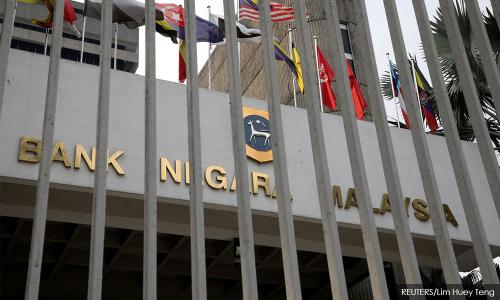LETTER | Banks needs to find their moral compass
LETTER | In a recent statement informing loan borrowers that they can start submitting their applications for the six-month loan moratorium, Bank Negara Malaysia concurrently also advised borrowers that opting in will raise the overall cost of their borrowings.
Their intention of doing so might be well-meaning but when conveyed across concurrently, it gives the impression that BNM, whose main focus and priority are stability concerns in the financial sector, is an uncaring institution devoid of empathy, insensitive to the needs of Malaysians in general and beholden to the banks.
Since the country went into its first lockdown in March 2020, moral outrage has emerged, gaining credence and intensity amongst Malaysians on the imbalance between banks that are too big to fail, profiting from excessive risk-taking in good times and taxpayers suffering the costs in bad times.
The people are not asking BNM to wave a magic wand and hopefully, their debts obligations are resolved. The public is well aware that BNM’s actions can have serious unintended consequences and financial interests always loom large in their decisions.
In BNM’s annual report, it states that all the things the central bank does, it does in the best interest of the nation, taking into account the changing needs of the Malaysian economy and its people, and the central role of finance in the nation’s economic and social progress.
In addressing the pandemic, BNM said they adjusted its regulatory and supervisory priorities to achieve amongst others, the easing of cash flow pressures of affected borrowers by providing timely and coordinated assistance. During the MCO in March 2020, apparently, eight million individual borrowers and 250,000 SMEs benefited from the automatic moratorium with 840,000 borrowers resumed repayments by the end of September 2020.
Even though borrowers were apparently assured they could still seek help in future if their financial circumstances change as a result of further shocks due to the pandemic, in reality, with reduced visibility into the borrowers' financial health and repayment behaviour, banks would exercise greater caution in agreeing to any rescheduling of repayments.
BNM serves as a basic structure for all Malaysians and both are bound together as one system of cooperation. This pandemic did not result in a financial crisis for the banks in Malaysia but resulted in a moral crisis.
Is there a moral obligation between BNM and the people in this country towards each other?
This pandemic has caused untold misery to a lot of people and businesses and the present financial system inflicts unnecessary punishment on many relatively poor and defenceless people. It has stripped our financial system of any semblance of democracy enslaving Malaysians forever.
The fallout from this pandemic has two probable offsetting effects. The probability of the loan borrowers not able to continue with their existing debt obligations post the pandemic could pose problems to the future profits of the banks as higher default rates will start to show up on banks’ balance sheets and will be reflected as higher impaired loan provisions or credit cost.
On the other hand, if the banks, instead of maximising their profits, were to help their loan borrowers more than providing a moratorium on their repayment, it incentivises their loan borrowers and increases their probability of survival, thus raising the value at stake.
Is it less on the bank’s choice and more on BNM’s actions worrying that this loan moratorium will further delay the recognition of non-performing loans (NPL) into 2022 by the banks that could result in loan-loss allowances to impaired loans becoming less accurate indicators of banks' loss-absorption buffers in the interim?
Moody's Investors Service had in a report in May 2020 stated that the asset quality of three of the largest banks in Malaysia is likely to deteriorate from 2021 as the loan repayment moratoriums during the MCO in 2020 expire in September 2020.
Fitch Ratings in a recent report expects the amount of loans seeking moratorium this time will be materially lower than in 2020, but the proportion will rise significantly in light of the continued financial strains on households and small businesses face from the MCO and enhanced MCO.
When Cuepacs is asking the Public Sector Home Financing Board (LPPSA) to also defer repayment of housing loans by civil servants for six months, even though civil servants and government retirees are receiving full salaries and pensions, hence able to cover their monthly expenses, the situation is serious.
BNM needs to decide as they are morally complicit as with all of us in letting our fellow Malaysians down. BNM needs to be brave. Financial interests of the country or the welfare of Malaysians?
The views expressed here are those of the author/contributor and do not necessarily represent the views of Malaysiakini.
RM12.50 / month
- Unlimited access to award-winning journalism
- Comment and share your opinions on all our articles
- Gift interesting stories to your friends
- Tax deductable
